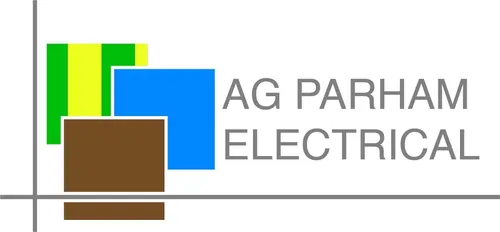FAQ
At AGP Electrical, we strive to provide the best services to our customers. Below, you’ll find answers to some of the most common questions we receive. Whether you’re looking for information, safety tips, or general electrical advice, this FAQ section is designed to help you find the information you need quickly and easily. If you can’t find what you’re looking for here, feel free to contact us directly for personalised assistance.
Fuses are designed to melt and break the circuit when excessive current flows, while circuit breakers automatically switch off the circuit and can be reset.
A circuit breaker usually trips to protect your home from electrical problems. The most common reasons include:
- Too many appliances plugged into one circuit (overload)
- Damaged wiring or loose connections (short circuit)
- Faulty appliances causing a sudden surge
- Ground faults, where electricity takes an unexpected path
If it keeps happening, don’t ignore it—it could be a sign of something serious. Give us a call and we’ll safely track down the cause and get it sorted.
Grounding is a safety feature in your electrical system. It provides a path for excess electricity to safely flow into the earth in case of a fault—like a surge or short circuit. This helps protect you from electric shocks and prevents damage to your appliances.
Proper grounding is essential for safety and is required by electrical codes. Not sure if your system is grounded properly? We can check it and make sure everything’s up to spec.
An RCD (Residual Current Device) is a life-saving safety switch that cuts off electricity if it detects a fault—like electricity flowing through an unintended path (such as through a person). It reacts in milliseconds to help prevent serious electric shocks and even fires.
RCDs are now a legal requirement in most modern installations and are especially important in areas like kitchens, bathrooms, and outdoors. If your home doesn’t have one—or you’re not sure—get in touch and we’ll check it for you.
An SPD (Surge Protection Device) is designed to protect your electrical system and devices from power surges—often caused by lightning or sudden changes in the power supply. It works by safely diverting excess voltage away from your wiring, helping to prevent damage to things like TVs, computers, and other sensitive equipment.
SPDs are especially recommended for homes with solar panels, EV chargers, or high-value electronics, where protection from surges is even more important. Not sure if you need one? We’re happy to take a look and offer advice.
An AFDD (Arc Fault Detection Device) is a safety device that detects dangerous electrical arcs—tiny sparks caused by damaged cables or loose connections. These arcs can lead to fires if left unchecked. An AFDD cuts the power before things get serious, adding another layer of protection to your electrical system.
They’re now recommended in certain parts of a property, like bedrooms, consumer units in wooden buildings, or places with high fire risk. While not legally required everywhere yet, they’re a smart addition for extra peace of mind—especially in new builds or rewires. We can let you know if your installation would benefit from one.
In the UK, smoke detectors should be replaced every 10 years, even if they still seem to be working. Over time, the sensors inside degrade and become less reliable. You should also test them monthly and change the batteries once a year (unless they’re sealed units).
If your alarm is chirping, discoloured, or over 10 years old—it’s time for a replacement. For best protection, make sure you have the right type of detector in the right place. We can supply and fit modern smoke and heat alarms that meet the latest safety standards.
In most UK homes, you should have:
- Smoke alarms on every level of your home, ideally in hallways and landings
- Heat alarms in kitchens (to avoid false alarms from cooking)
- Carbon monoxide (CO) alarms near any fuel-burning appliance—like a gas boiler, fire, or wood burner
All alarms should be tested monthly, and for maximum safety, interlinked systems are recommended—so if one goes off, they all do. This is especially important in rented or new-build properties where it’s now required by law.
Not sure what your home needs? We can assess your property and install a fully compliant setup that gives you peace of mind.
